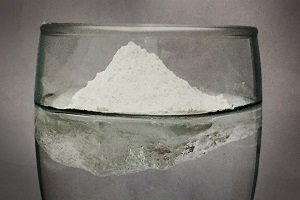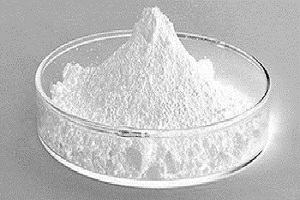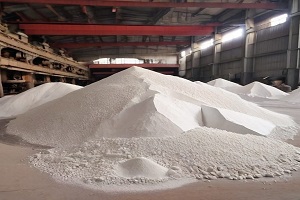- Unit 13,Floor 5h, No 179, Orchid Building, East-Ferdows, Tehran, IRAN
- info@Armaantejarat.com
- 0098912021800

Solubility of calcium carbonate in water

Solubility of calcium carbonate in water
Whether calcium carbonate dissolves in water is an important issue in the field of water chemistry and its impact on health and the environment. Calcium carbonate is a chemical compound that is naturally found in rocks and water sources. The reaction of this compound with water, to a degree that depends on a few factors, can cause calcium carbonate to dissolve or form precipitates in water. This has a major impact on the quality of drinking water and the efficiency of plumbing systems, and is important for the study and control of water pollution. The solubility of calcium carbonate in water is an important aspect of water chemistry that has numerous effects on human health and the environment. Calcium carbonate is a chemical compound that is naturally found in soil and rocks. When water hits these rocks, a solubility process begins that causes calcium carbonate to dissolve in water. The process of calcium carbonate solubility in water The process of calcium carbonate solubility in water is carried out by two basic reactions: the carbonate reaction and the anion reaction. In the carbonate reaction, calcium carbonate reacts with hydrogen ions (H+) in water to form hydrogen carbonate (Ca(HCO3)2). In the anionic reaction, this process occurs with calcium ions (Ca2+) and carbonate ions (CO3^2-). Solubility of calcium carbonate in water The solubility of calcium carbonate in water depends on several factors, such as temperature, pressure, pH, and the amount of carbon dioxide (CO2) in the water. Increasing temperature and pressure usually increases the solubility of calcium carbonate in water. Also, adding CO2 to water increases the solubility of calcium carbonate. Dissolving calcium carbonate in water can cause problems, such as the formation of calcium carbonate deposits in pipes and equipment, which can cause blockages and reduce the efficiency of water and heating systems. This problem occurs especially in areas with hard water and low pH. Therefore, controlling and managing the solubility of calcium carbonate in water is very important for maintaining water quality and the performance of various water systems. Effect of different pH levels, temperature and salinity on calcium carbonate solubility The effect of different pH levels, temperature and salinity on the solubility of calcium carbonate in water is noticeable on water quality and various systems such as drinking water production and industrial equipment. In the following, the effect of each of these factors on the dissolution of calcium oxide in water is examined. pH (PH) pH is a scale that shows the acidity or alkalinity of the water environment. In waters with high pH (alkaline), calcium carbonate is converted to the hydrogen carbonate form, which has greater solubility. On the other hand, in waters with low pH (acidic), calcium carbonate accumulates in the water in the form of calcium carbonate precipitates. Temperature Temperature also has a great effect on the solubility of calcium carbonate. As the temperature increases, the solubility of this compound in water increases. This is because chemical reactions occur more rapidly at higher temperatures. This can lead to the formation of calcium carbonate deposits in warmer water systems. Salinity The salinity of the water, i.e. the amount of dissolved minerals in the water, also affects the solubility of calcium carbonate. If the water is salty, the solubility of calcium carbonate decreases and calcium chloride or calcium carbonate deposits may form. This is commonly seen in coastal areas and marine waters. In general, the balance between pH, temperature and salinity can have a large impact on the solubility of calcium carbonate in water. These effects affect the production of drinking water, industrial equipment and the quality of water consumed by humans. Therefore, studying and controlling these factors is very crucial for optimal management of water resources and controlling the formation of calcium carbonate deposits. Effect of atmospheric pressure on the dissolution of calcium carbonate Now that we know what the solvent of calcium carbonate is, it is not a bad idea to look at the effect of atmospheric pressure on the solubility of calcium carbonate. The solubility of calcium carbonate in water depends on several factors such as temperature, pH, and atmospheric pressure. Here, the effect of atmospheric pressure on the dissolution of calcium carbonate is examined. Atmospheric Pressure and Dissolution of Calcium Carbonate Atmospheric pressure is one of the factors that can adversely affect the solubility of calcium carbonate in water. As atmospheric pressure increases, the solubility of calcium carbonate in water decreases. This is due to chemical reactions at different pressures and their effect on the equilibrium of reactions in water. One area where atmospheric pressure can have an effect is the reaction of calcium carbonate with carbon dioxide (CO2) in water. The carbonate reaction with CO2 occurs less frequently at high pressures and contributes to the formation of hydrogen carbonate. This change in the reaction equilibrium reduces the solubility of calcium carbonate and the formation of sediments. Optimal Water Systems The effect of atmospheric pressure on the solubility of calcium carbonate is especially important in groundwater systems. In these systems, the atmospheric pressure is reduced, which increases the solubility of calcium carbonate. In other words, a lower atmospheric pressure has a positive effect on the solubility of calcium carbonate in water. In short, atmospheric pressure inversely affects the solubility of calcium carbonate in water, meaning that as pressure increases, its solubility in water decreases. This is important in the study and management of groundwater resources and water treatment for various uses, and helps water managers and chemists determine the most optimal conditions for the production of drinking water and other water needs. By clicking on the link provided, you can read about the difference between lime and calcium carbonate. Difference between strong and weak acids as a solvent for calcium carbonate The difference between strong and weak acids as a solvent for calcium carbonate in water is an important concept in water chemistry and its effect on existing chemical equilibria. Strong and weak acids differ in terms of their chemical properties and their effects on the environment and drinking water. have important properties. Definition of strong and weak acids These include: Strong acids Acids that completely dissociate into hydrogen ions (H+) and the corresponding ion in water are strong acids. Examples of strong acids include: Hydrochloric acid (HCl) Sulfuric acid (H2SO4) Weak acids Acids that partially dissociate into hydrogen ions (H+) in water and have an equilibrium between molecular and ionic forms are called weak acids. Examples of weak acids include: Acetic acid (CH3COOH) Carbonic acid (H2CO3) Effect of strong and weak acids on the dissolution of calcium carbonate in water Now that we know what strong and weak acids are, in this section we are going to introduce you to their effects. Strong acids Strong acids, due to the production of abundant hydrogen ions in the environment, can react with calcium carbonate in water and convert it to the hydrogen carbonate form (Ca(HCO3)2). This process increases the solubility of calcium carbonate in water. Weak acids Weak acids have an equilibrium between molecular and ionic forms. In other words, the complementary conversion of these acids to hydrogen ions occurs less frequently. As a result, the effect of these acids on the solubility of calcium carbonate in water is less than that of strong acids. Impacts on the environment and drinking water Strong and weak acids have potential impacts on the environment and drinking water, the most important of which are: Strong acids in high quantities can acidify water and have harmful effects on the environment and drinking water. For example, increasing the amount of strong acids in water can cause the pH of the water to change to acidic, which has a negative effect on biosystems and algae. Weak acids, due to the equilibrium nature of the processes, have less impact on the environment. However, they can still be effective at high levels. Finally, the difference between strong and weak acids in the solubility of calcium carbonate in water shows how the type and amount of acid present in the environment and drinking water affects water quality and the environment. In order to maintain important chemical balances in water and prevent harmful effects, it is very important to study and control these acids in water. Important chemical balances in water and prevent harmful effects, it is very important to study and control these acids in water. Conclusion In conclusion, we can say that calcium carbonate is normally soluble in water. The main reaction of this compound with water occurs in two stages. First, calcium carbonate is converted to hydrogen carbonate (Ca(HCO3)2). This process is then accelerated by hydrogen ions (H+) in water, leading to the formation of calcium cations (Ca2+). If parameters such as temperature, pressure, pH, and carbon dioxide (CO2) content in water change, the solubility of calcium carbonate also changes. Generally, increasing temperature and pressure increase the solubility of calcium carbonate, while adding CO2 and lowering pH help increase solubility. In general, differences in environmental conditions can change the solubility of calcium carbonate, which affects the formation of precipitates or the dissolution of this compound in water and ultimately the quality of drinking water and the efficiency of water systems.
Similar Blog


The difference between micronized and coated calcium carbonate
Calcium carbonate is a chemical compound with the formula CaCO3 and is present in the structure of various rocks, including limestone. This compoun...
Application of calcium carbonate in industries
Calcium Carbonate Powder in Industries Calcium carbonate powder, precipitated products and dolomite are one of the most important and diverse materia...
Application of calcium carbonate powder in the food industry
Application of calcium carbonate powder in the food industry, Calcium is an essential mineral for human health. This mineral is abundant in our body. ...



